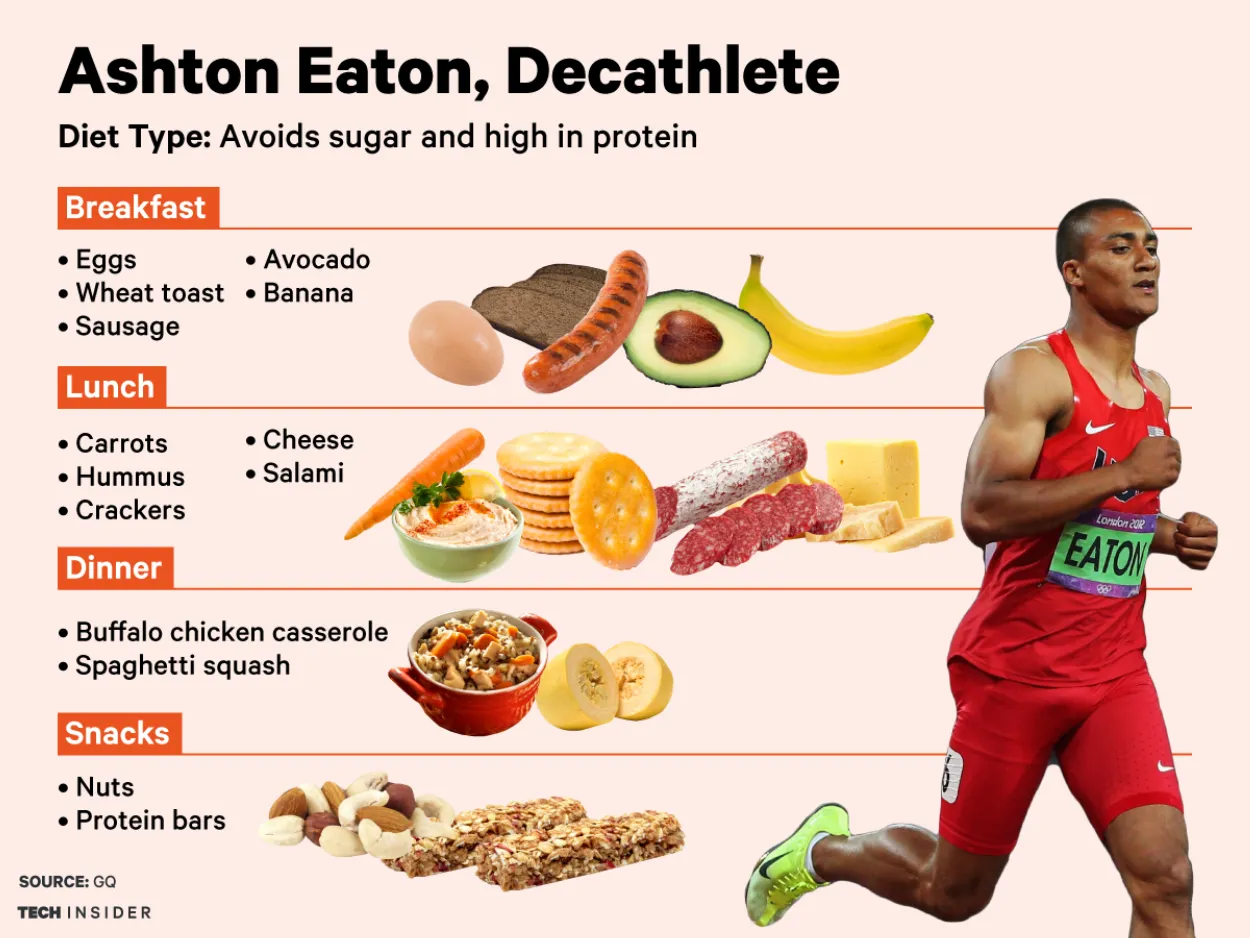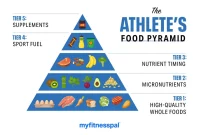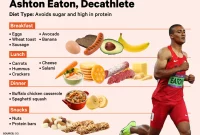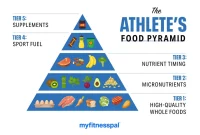The key to optimizing athletic performance lies in proper nutrition. This article explores the role of diet in enhancing athletic abilities and highlights the impact of specific nutrients on athletic performance. From understanding macronutrient needs to identifying the optimal timing and types of foods, unlocking your full potential starts with fueling your body right.
Macro and Micro Nutrient Balance for Athletes
Eating a balanced diet that provides the right amount of macronutrients and micronutrients is crucial for athletes looking to optimize their performance. The proper balance of these nutrients ensures sufficient energy levels, supports muscle growth and repair, and enhances overall athletic performance.
Macronutrients, such as carbohydrates, proteins, and fats, are essential for providing energy to fuel physical activity. Athletes should aim to consume a balanced ratio of these macronutrients, varying based on their specific sport and training goals. Carbohydrates are the primary source of energy and should make up the majority of an athlete’s diet. Protein is essential for muscle repair and growth, while fats provide long-lasting energy and support hormone production.
In addition to macronutrients, athletes must also pay attention to their intake of micronutrients, which include vitamins and minerals. These nutrients play a crucial role in various physiological processes, such as immune function, bone health, and energy production. Athletes should prioritize consuming a wide variety of fruits, vegetables, whole grains, lean meats, and dairy products to ensure an adequate intake of essential micronutrients.
Furthermore, hydration is an often overlooked but vital aspect of an athlete’s diet. Staying properly hydrated ensures optimal performance and helps prevent muscle cramps, fatigue, and decreased cognitive function. Athletes should aim to drink enough fluids, especially water, throughout the day and during training or competition.
To optimize athletic performance through diet, it is important for athletes to work with a sports nutritionist or dietitian who can develop a personalized plan based on their individual needs and goals. These professionals can guide athletes in understanding the appropriate ratio of macronutrients, optimal meal timing, portion control, and supplementation if necessary.
The Impact of Plant-Based Diets on Performance
When it comes to optimizing athletic performance, diet plays a crucial role. Athletes are constantly seeking ways to enhance their performance and plant-based diets have been gaining popularity in recent years. These diets primarily focus on consuming whole foods derived from plants such as fruits, vegetables, grains, legumes, nuts, and seeds, while minimizing or eliminating animal products.
Improved Nutrient Intake
Plant-based diets can provide athletes with an abundant supply of essential nutrients. Fruits and vegetables are rich in vitamins, minerals, and antioxidants that support overall health and aid in recovery. Grains, legumes, nuts, and seeds are excellent sources of carbohydrates, protein, and healthy fats, which are essential for energy production, muscle growth, and repair.
Enhanced Digestion
Plant-based diets are typically high in fiber, which can improve digestion and nutrient absorption. Fiber helps regulate bowel movements, prevents constipation, and promotes a healthy gut microbiome. A well-functioning digestive system is vital for athletes as it ensures efficient uptake of nutrients and eliminates digestive discomfort that may hinder performance.
Reduced Inflammation
Inflammation is a natural response to exercise-induced stress, but excessive or chronic inflammation can impair recovery and hinder performance. Plant-based diets are known to have anti-inflammatory properties due to the abundance of antioxidant-rich foods they contain. This can help reduce exercise-induced inflammation and promote faster recovery.
Optimal Weight and Body Composition
Maintaining an optimal weight and body composition is essential for many athletes. Plant-based diets, when properly balanced, can provide athletes with the right amount of calories and nutrients without excessive fat intake. The high fiber content also helps promote feelings of satiety, preventing overeating and aiding weight management.
Environmental Sustainability
Plant-based diets are not only beneficial for performance but also have a positive impact on the environment. Animal agriculture is a significant contributor to greenhouse gas emissions and deforestation. By adopting a plant-based diet, athletes can contribute to reducing their carbon footprint and support sustainable food production practices.
Conclusion
In conclusion, plant-based diets can have a positive impact on athletic performance. These diets provide athletes with essential nutrients, improve digestion, reduce inflammation, support weight management, and promote environmental sustainability. However, it is important for athletes to carefully plan their plant-based diets to ensure the intake of all necessary nutrients and consult with a registered dietitian to optimize their athletic performance.
Managing Weight for Athletic Efficiency
When it comes to optimizing athletic performance, weight management plays a crucial role. Athletes need to find a balance between maintaining a healthy weight and ensuring they have enough energy to perform at their best. Here are some key strategies for managing weight effectively:
Evaluating Caloric Needs
Understanding the number of calories your body requires is essential for weight management. Each athlete’s caloric needs may vary based on factors such as age, gender, activity level, and specific sport. Consulting with a sports nutritionist can help determine the appropriate caloric intake to support athletic performance.
Focus on Nutrient-Dense Foods
Opting for nutrient-dense foods is crucial for athletes to meet their nutritional needs while managing weight. Incorporate a variety of fruits, vegetables, lean proteins, whole grains, and healthy fats into your diet. Limiting processed foods and sugary drinks can also contribute to maintaining a healthy weight.
Timing and Portion Control
Proper timing and portion control can aid in weight management. Fuel your body with smaller, well-balanced meals throughout the day to maintain energy levels and prevent overeating. Adjusting your meal timing before and after training sessions can optimize nutrient absorption and aid in muscle recovery.
Hydration
Staying properly hydrated is crucial for managing weight and athletic performance. Adequate water intake helps regulate body temperature, supports digestion, and maintains overall bodily functions. Athletes should prioritize drinking water throughout the day, especially during intense training sessions.
Monitoring Body Composition
Regularly monitoring body composition can provide valuable insights into weight management progress. This can be done through measuring body fat percentage, muscle mass, and overall weight. Working with a sports nutritionist or healthcare professional can help interpret these measurements and make adjustments to your weight management plan.
Remember, managing weight for athletic efficiency is a unique process. It is essential to find an approach that works best for your individual needs and goals. By implementing these strategies and seeking guidance from professionals, athletes can optimize their performance through effective weight management.
Role of Antioxidants and Vitamins
In the quest to optimize athletic performance, diet plays a crucial role. One important aspect to consider is the intake of antioxidants and vitamins. These nutrients are known to support overall health and well-being, but their benefits go beyond that. Here, we explore the role of antioxidants and vitamins in enhancing athletic performance.
Antioxidants
Antioxidants are substances that help protect the body from oxidative stress caused by free radicals. During exercise, the body produces more free radicals, leading to increased oxidative stress. This can contribute to muscle fatigue, inflammation, and impaired recovery. Consuming foods rich in antioxidants, such as berries, dark chocolate, and leafy greens, can help combat oxidative stress and support athletic performance.
Vitamins
Vitamins also play a significant role in optimizing athletic performance. Here are some essential vitamins and their benefits:
- Vitamin C: Known for its immune-boosting properties, Vitamin C also aids in collagen synthesis, which helps maintain healthy connective tissues.
- Vitamin D: This vitamin is crucial for bone health and muscle function. Adequate levels of Vitamin D can enhance muscle strength and performance.
- Vitamin E: As a potent antioxidant, Vitamin E helps protect cell membranes from damage. This can contribute to improved recovery and reduced muscle soreness.
- Vitamin B complex: B vitamins, including B1, B2, B3, B6, and B12, are involved in energy production, which is vital for athletic performance. They also support the nervous system and aid in red blood cell production.
While a well-balanced diet should provide sufficient vitamins, some athletes may require additional supplementation based on individual needs and specific circumstances.
Conclusion
In conclusion, antioxidants and vitamins play a vital role in optimizing athletic performance. By incorporating antioxidant-rich foods and ensuring adequate vitamin intake, athletes can support their overall health, combat oxidative stress, and enhance their performance. However, it is important to consult with a healthcare professional or registered dietitian to determine individual needs and appropriate supplementation, if necessary.
Understanding Food Allergies and Intolerances in Sports
Food allergies and intolerances can have a significant impact on athletic performance. Athletes need to pay careful attention to their diet to optimize their performance on the field, court, or track.
Food allergies are immune system responses to certain foods that can trigger severe reactions, such as hives, difficulty breathing, or even anaphylaxis. Common food allergens include peanuts, tree nuts, eggs, milk, wheat, soy, fish, and shellfish. It is crucial for athletes with known allergies to avoid consuming these foods to prevent any life-threatening situations.
On the other hand, food intolerances are non-immune reactions to particular foods or ingredients. Symptoms of food intolerances may include bloating, gastrointestinal distress, fatigue, or skin issues. Common intolerances include lactose intolerance, gluten sensitivity, and fructose malabsorption. Athletes with intolerances should identify and eliminate trigger foods from their diet to prevent discomfort and promote optimal performance.
Athletes must work closely with registered dietitians or sports nutritionists to develop dietary plans that cater to their unique needs. These professionals can provide guidance on alternative food choices, meal planning, and strategies to ensure the athlete’s nutritional requirements are met despite restricted diets.
It is important for athletes to understand the impact that food allergies and intolerances can have on their bodies. By identifying and managing these conditions effectively, athletes can optimize their diet to fuel their performance and enhance recovery.
Conclusion
In conclusion, optimizing athletic performance through diet is crucial for athletes to achieve peak results. By focusing on consuming a balanced, nutrient-rich diet that includes lean proteins, complex carbohydrates, healthy fats, and essential vitamins and minerals, athletes can enhance their energy levels, promote muscle growth and repair, improve endurance, and support overall well-being. Additionally, staying hydrated and timing nutrient intake around workouts can further boost performance. Therefore, a carefully planned diet plays a vital role in helping athletes reach their full potential.




